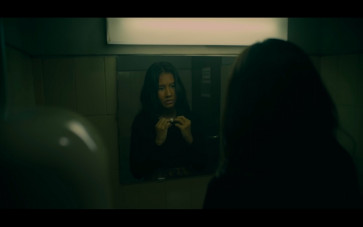Popular Reads
Top Results
Can't find what you're looking for?
View all search resultsPopular Reads
Top Results
Can't find what you're looking for?
View all search resultsNuanced view: The problem with enjoying the work of problematic artists
Change text size
Gift Premium Articles
to Anyone
T
oxic stories from the pantheons of art makes one ponder: can you truly enjoy an artwork while fully aware of the artist’s sexual misconduct?
It was the movie that was supposed to push Indonesian cinema further than ever before. Penyalin Cahaya (The Photocopier) swept up 12 prizes at the Indonesian Film Festival, the most awards for any Indonesian film ever. It premiered at the 26th Busan International Film Festival in South Korea and Netflix acquired its distribution rights. The achievement propelled its feature film debutant director Wregas Bhanuteja to international stardom with praise from critics all over the world.
Telling the story of a young college student “investigating” her possible sexual assault at a party, the movie was timely and important, too. Its depiction of trauma and assault won acclaim from critics who watched the premiere at film festivals. The film was much anticipated for public viewing as its general release on Netflix was announced in late 2021.
Then the penny dropped. On Jan. 10, the film’s official social media page declared that a member of its production team had been accused of sexual assault in the past. Amidst the fog and ambiguity that followed, the alleged perpetrator’s name was deleted from the film’s credits and The Photocopier was released to little fanfare on Netflix.
The issue surrounding the case has, understandably, led some critics to reevaluate their position regarding the movie. “The nagging question is, would we be so critical toward certain elements of that movie if the case had never come to surface?” asked Dini Adanurani, a film critic and researcher for Jurnal Footage. “Can we be sensitive to how victims are depicted in stories, not just within The Photocopier in particular?”
After its wider release, The Photocopier has been accused of exploiting a victim’s torment for rote thriller fare. “For me, it’s a breathtaking movie,” Dini said. “But the film is related to real people and real cases, so we need to take into account the observations of people who are more sensitive to these experiences. Some might feel it’s exploitative, and that’s also a valid point.”
For Dini, the measures that should be taken are not as simple as “canceling” the movie and not watching it at all. “I think audiences have the right to choose whether or not to watch the movie,” she said. “But it’s also important to be open to discussions and listen to the experience of others.”



















